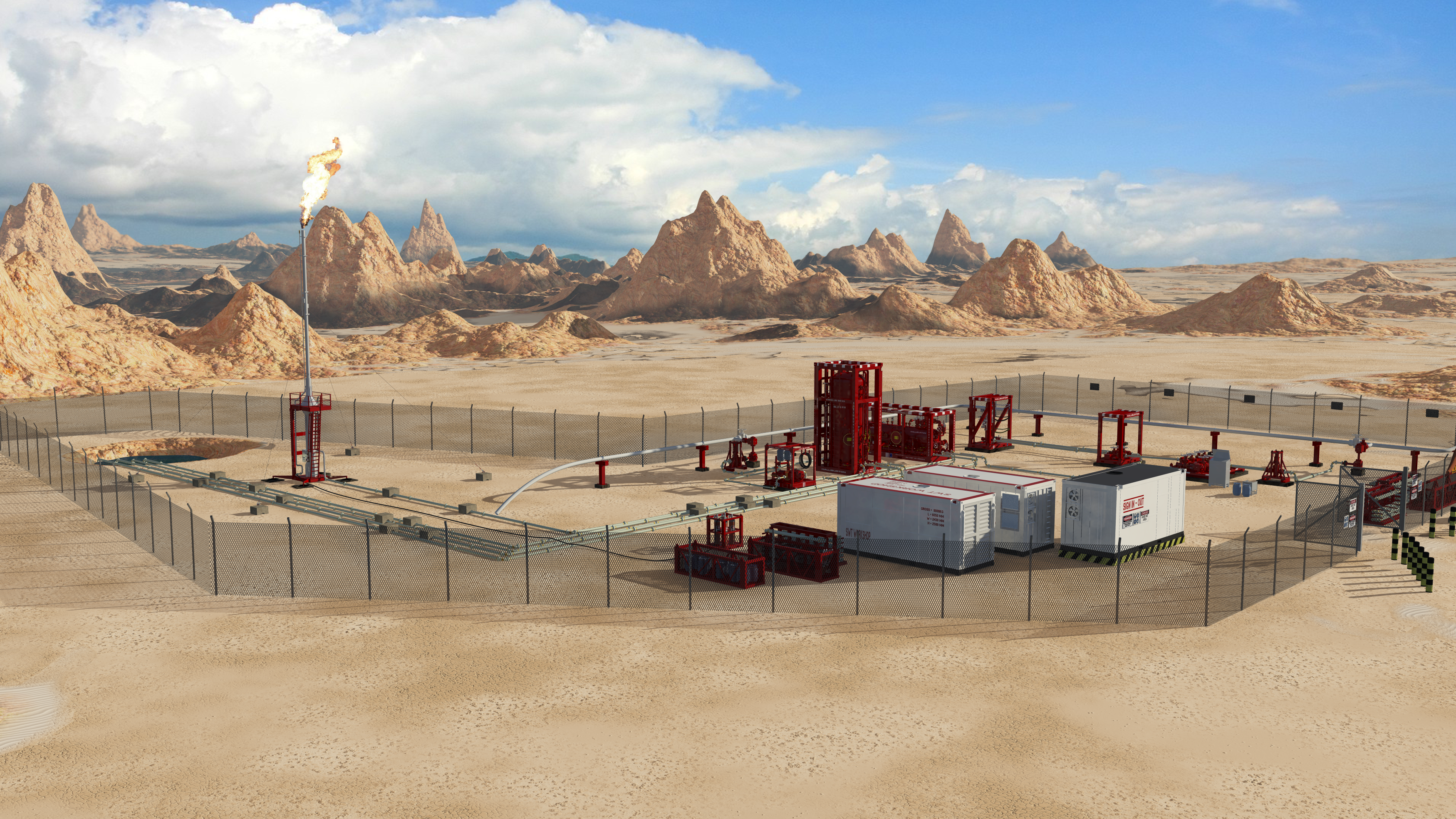 Search
Search
 Search
Search

15 wells successfully cleaned and tested at four different locations within a span of six months
Download PDFProvide an engineered EPF package of SWT and solids management system equipment

India
A leading exploration and production (E&P) company in India desired executing an integrated infill well campaign consisting of drilling, fracturing, and well testing operations before tying into a production facility. Candidate wells were clustered but spread across several locations, with the goal of tapping the same reservoir. Based on a history with similar challenges, it was determined that a conventional approach of individually testing each well would cause delays and significant production loss, hindering the operator’s objectives and substantially increasing costs.
Halliburton provided an early production facility (EPF) package as an engineered solution to address the operator’s challenges while maximizing asset value and minimizing operational risk. This package included surface well testing and solids management system equipment tactically placed, which allowed simultaneous testing of multiple wells with a single train of equipment. This reduced nonoperational time, minimized equipment footprint, and allowed concurrent operations in various well service domains.
To date, the EPF has successfully cleaned up and tested 15 wells at four different locations within six months with record uptime (greater than 98% of the total operational time) and no health, safety, and environmental (HSE) or service quality (SQ) issues.
Wells successfully cleaned and tested
Volumes of MMSCF/gas and 164,000/bbl of liquid produced
Total operational time between 15 wells
The primary objectives for this integrated infill well campaign were to (1) recover the maximum volume of proppant and formation sand during well cleanup and testing, (2) determine accurate flow rates to verify reservoir potential, (3) screen for suitable techniques for production enhancement, (4) boost hydrocarbon production to generate additional cash flow, and (5) reduce operational time required to complete flow back of all the wells.
Halliburton provided an EPF as an engineered solution to address all the operator’s challenges. The spread of surface well testing and solids management equipment was tactically placed, implementing simple plug-and-play technology to help reduce the time necessary for rigup, rig down, and inter-location movement. This allowed simultaneous testing of multiple wells with a single train of equipment, directly reducing nonoperational time. Using a single train of equipment helped reduce the equipment footprint and permitted concurrent operations in multiple areas of well service. A capacity to start, divert, or shut any well at any point during flow was strategically incorporated into the equipment configuration to provide the highest degree of operational flexibility.
Maximum anticipated surface pressure and temperature were 4,000 psi and 110°C, respectively. The EPF was designed for handling 30 MMSCFD of gas and 7,500 BPD of liquid (1,500 BPD of oil and 6,000 BPD of water). Detailed engineering studies were performed to aid proppant management, handle formation solids, perform equipment and flow line sizing, erosional analysis, flaring studies, safety system design, relief system design, and flow modeling, enabling the successful design and delivery of the EPF.
This surface well testing equipment required detailed planning with respect to equipment scheduling and precise management of preventive and corrective maintenance over the long term.
To date, the EPF has successfully cleaned and tested 15 wells at four different locations within a span of six months with record uptime (greater than 98% of the total operational time) and no health, safety, and environmental or service quality issues. The cumulative volumes for 15 wells flowed by the EPF were 1,192 MMSCF of gas and 164,000 barrels of liquid. The success of this case will aid the operator with future projects where similar challenges are anticipated.

Halliburton surface well testing (SWT) tools and solutions compile full and reliable data, enabling better reservoir evaluations and appraisals.
